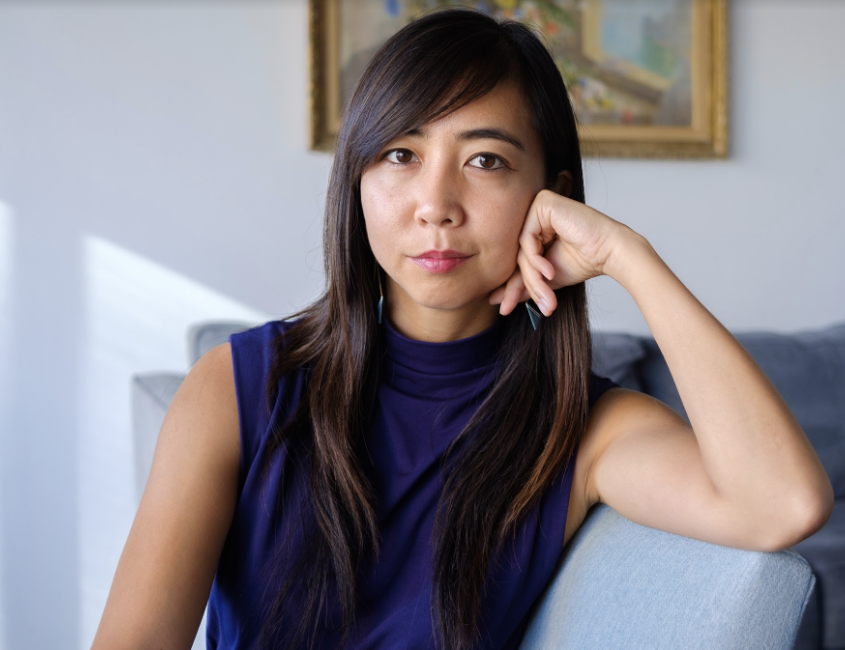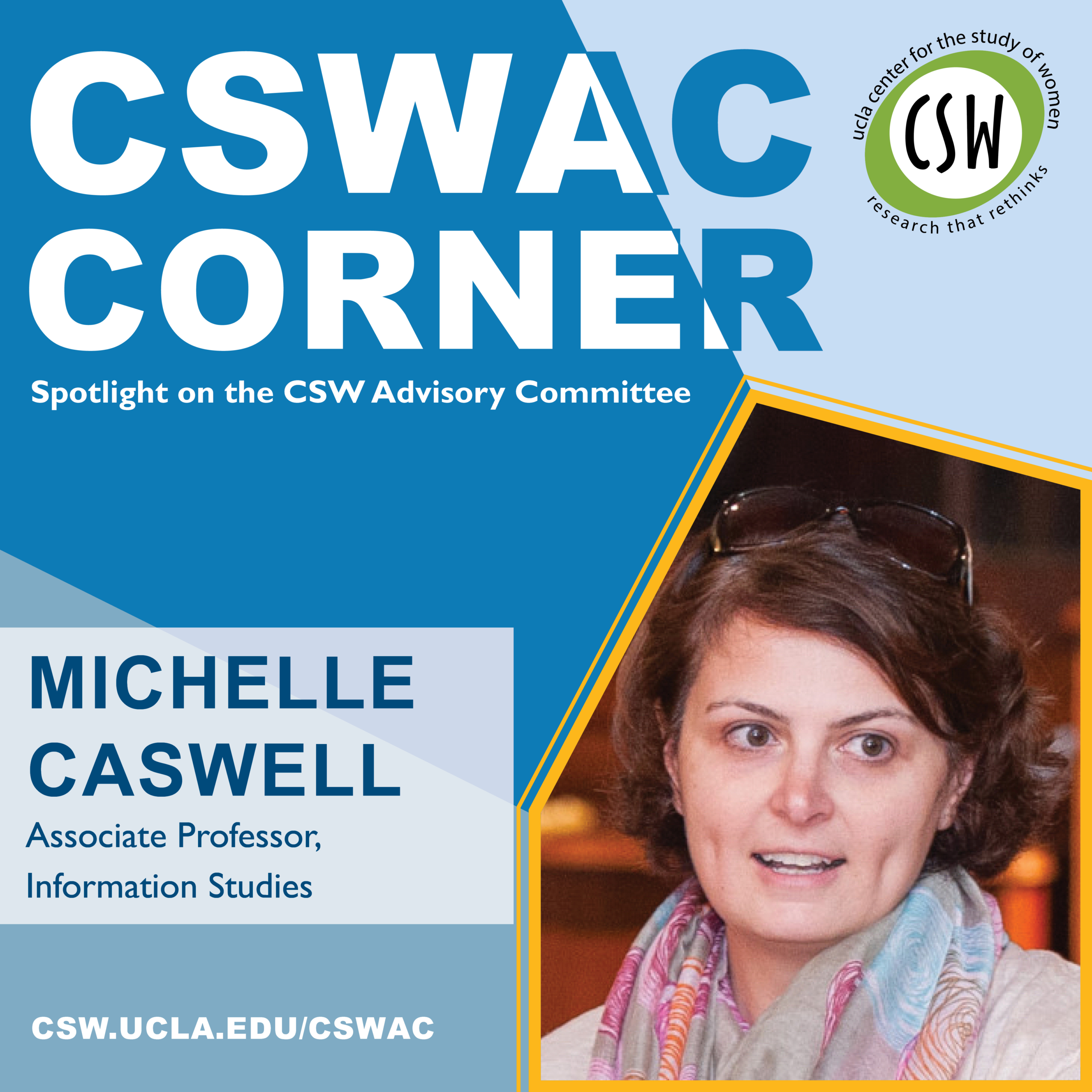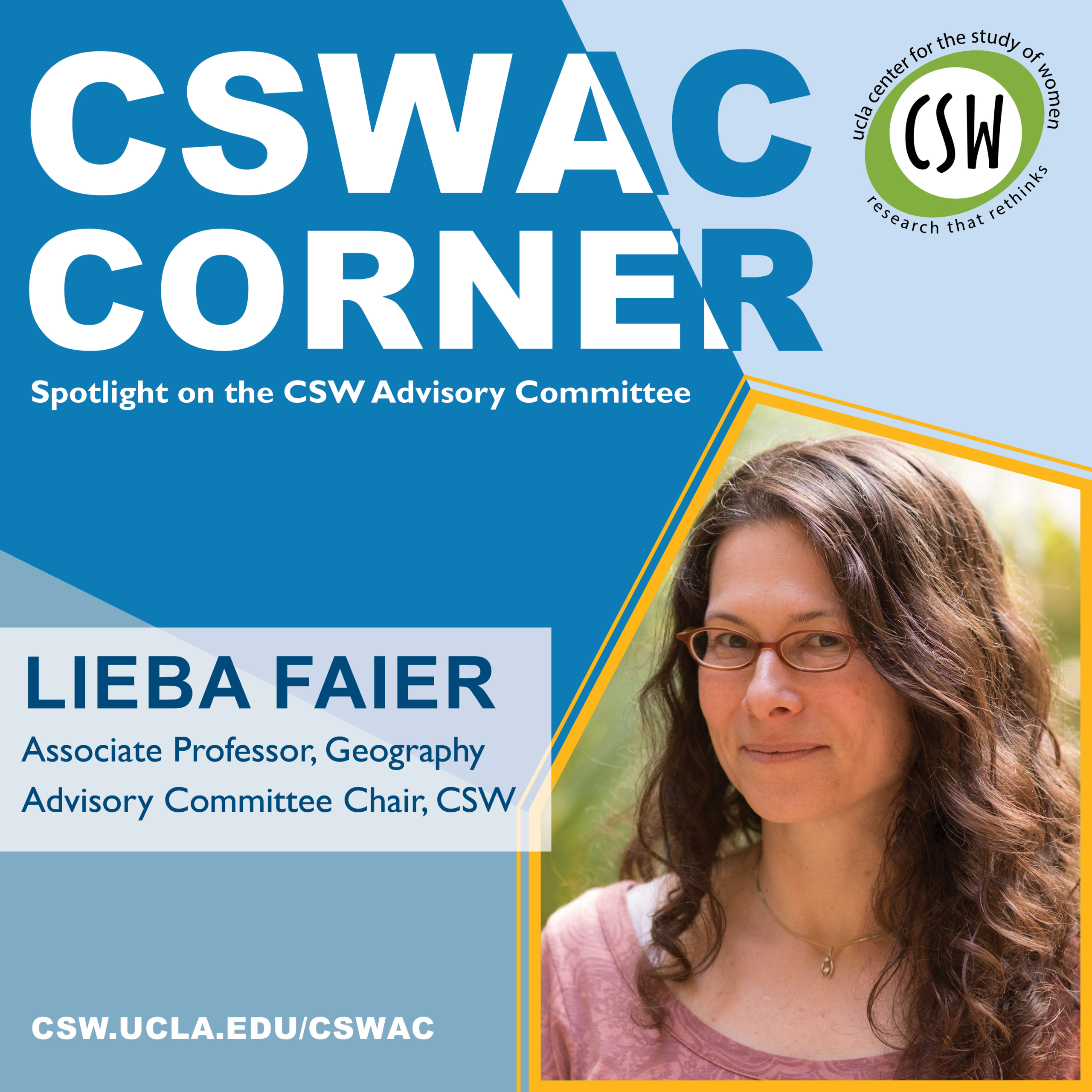CSWAC Corner: Evyn Lê Espiritu Gandhi
 Get to know our CSW Advisory Committee (CSWAC) members through CSWAC Corner! We are proud to have an advisory committee made up of feminist scholars working in various fields from gender studies to public health to film and television.
Get to know our CSW Advisory Committee (CSWAC) members through CSWAC Corner! We are proud to have an advisory committee made up of feminist scholars working in various fields from gender studies to public health to film and television.
CSWAC member Evyn Lê Espiritu Gandhi is an assistant professor of Asian American Studies at the University of California, Los Angeles (Tovaangar). Her interdisciplinary research engages critical refugee studies, comparative ethnic studies, and transpacific studies.
What does your current work consist of?
My interdisciplinary research takes the postwar South Vietnamese refugee diaspora as a point of departure for thinking through structural antagonisms, emergent solidarities, and new spatial imaginaries. My first book, Archipelago of Resettlement: Vietnamese Refugee Settlers and Decolonization across Guam and Israel-Palestine (University of California Press, 2022), puts critical refugee studies in conversation with Indigenous and settler colonial studies to ask: What happens when refugees encounter Indigenous sovereignty struggles in the countries of their resettlement?
To answer this question, I examine two case studies: From April to November 1975, the US military processed over 112,000 Vietnamese refugees in the unincorporated territory of Guam; from 1977 to 1979, the State of Israel granted asylum and citizenship to 366 non-Jewish Vietnamese refugees. Engaging archival research and oral histories conducted in Vietnam, Guam, Israel-Palestine, and the US, as well as analyzing cultural production from diasporic Vietnamese, Chamorro, and Palestinian writers and artists, I theorize the “refugee settler condition”: the fraught positionality of refugee subjects whose resettlement in a settler colonial state is predicated on the unjust dispossession of an Indigenous population.
I am currently working on a second book project, tentatively entitled Revisiting the Southern Question: South Korea, South Vietnam, and the US South. This project asks: How were South Korea, South Vietnam, and the US South connected during the Cold War period? What are the political, cultural, and affective afterlives of these historical encounters? This project puts Asian American studies in conversation with Black studies to articulate a distinct “southern politics” across multiple histories and geographies of “the South.”
What are you recently proud of/excited about in your career?
I was recently granted tenure and promotion to Associate Professor at UCLA, effective July 1, 2023! Also here are my recent books:
- Archipelago of Resettlement: Vietnamese Refugee Settlers and Decolonization across Guam and Israel-Palestine (University of California Press, 2022)
- The Routledge Handbook of Refugee Narratives (Routledge, 2023), co-edited with Vinh Nguyen
Both books are published open-access!
Where can we find you on social media?
I am on Twitter @evynelevyn
What are some of your current reads or a podcast that you’ve been listening to lately?
Some reading recommendations:
Afterparties: Stories by Anthony Veasna So
On Earth We’re Briefly Gorgeous by Ocean Vuong
In the Dream House by Carmen Maria Machado
Tastes Like War: A Memoir by Grace M. Cho
We Keep the Dead Close: A Murder at Harvard and a Half Century of Silence by Becky Cooper
Who is someone you find inspiring in your field of research?
I am very inspired by Y-Dang Troeung’s recent book, Refugee Lifeworlds: The Afterlife of the Cold War in Cambodia (2022), which puts critical refugee studies in conversation with critical disability studies and connects literary analysis to autotheory.
If you are a CSW Advisory Committee member who would like to be featured in CSWAC Corner, please fill out this Google form.



